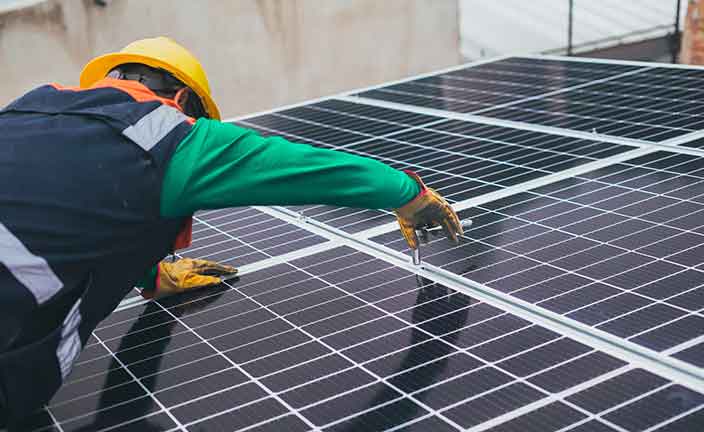The Future is Solar
Posted by Marie Murphy on June 17, 2019
Alternative energy, especially solar energy, has become an increasingly in-demand resource over the last decade. There have been several reasons that have driven this demand, including environmental motivations as more and more people are looking for renewable energy resources. Additionally, the cost of installing solar panels has decreased dramatically. Since 2010, PV panel cost estimates have declined by almost 56% for residential installations, and over 70% for both non-residential/commercial and utility-scale installations.1 The falling costs have increased the accessibility and demand, ultimately making solar installation skills more valuable in today's job market.
Furthermore, solar energy has also become more of accessible thanks to an increase in community solar projects. According to the Solar Energy Industries Association, community solar initiatives allow for multiple consumers to participate in and benefit from a solar project in their community. Participants in solar communities receive credits on their utility bill for their portion of the power produced on what is usually public or jointly owned property. Community solar projects enable those who are unable to install their own solar panels with access to the benefits and use of solar energy.
This increased accessibility presents a myriad of opportunities for employers. As of 2018, the National Solar Job Census reported that 242,000 people are working in the solar industry and long-term trends show significant growth moving forward. In the last seven years alone, the solar-related workforce has increased 159%.1 Although a few states faced job losses, 29 states saw significant job gains, especially in Florida, Illinois, Texas, New York, Ohio, and Washington. 1 The states that showed job gains are places where the solar industry is just beginning to become more prevalent, a trend that will hopefully continue across the US.
While solar energy has become tremendously more accessible, the solar job market has not followed quite as rapidly, leaving many employers in need of employees with solar installation and manufacturing skills. According to the 2018 Solar Job Census, 82% of employers reported that it was "somewhat" or "very difficult" to hire solar installers. This statistic is staggering given that the solar installation workforce has a low barrier to entry as most solar companies do not require a Bachelor's degree. In fact, 79% of solar companies overall do not require a four-year college degree and 85% of solar installation companies do not require a four-year college degree. 1
Yet employers are still struggling to fill their open positions because candidates lack the specific solar training or technical knowledge necessary and are being turned away. However, leading companies are taking on candidates, even those without every required skill, and are upskilling them to fit into their in-demand installation roles. Similarly, companies that employ a large number of electricians, HVAC technicians, plumbers, construction workers, or carpenters, can also upskill employees with solar installation capabilities to expand their business capabilities.
As the trusted training provider for hundreds of skilled trades companies, Penn Foster works with innovative employers to curate online skills training programs that upskill employees while increasing engagement and retention. The Penn Foster Solar Installation Skills program can help your organization equip skilled trades workers with the exact skills necessary to install, repair, and troubleshoot solar PV and solar thermal panels for residential and commercial buildings in as little as three months.
Sources: (1) National Solar Census
